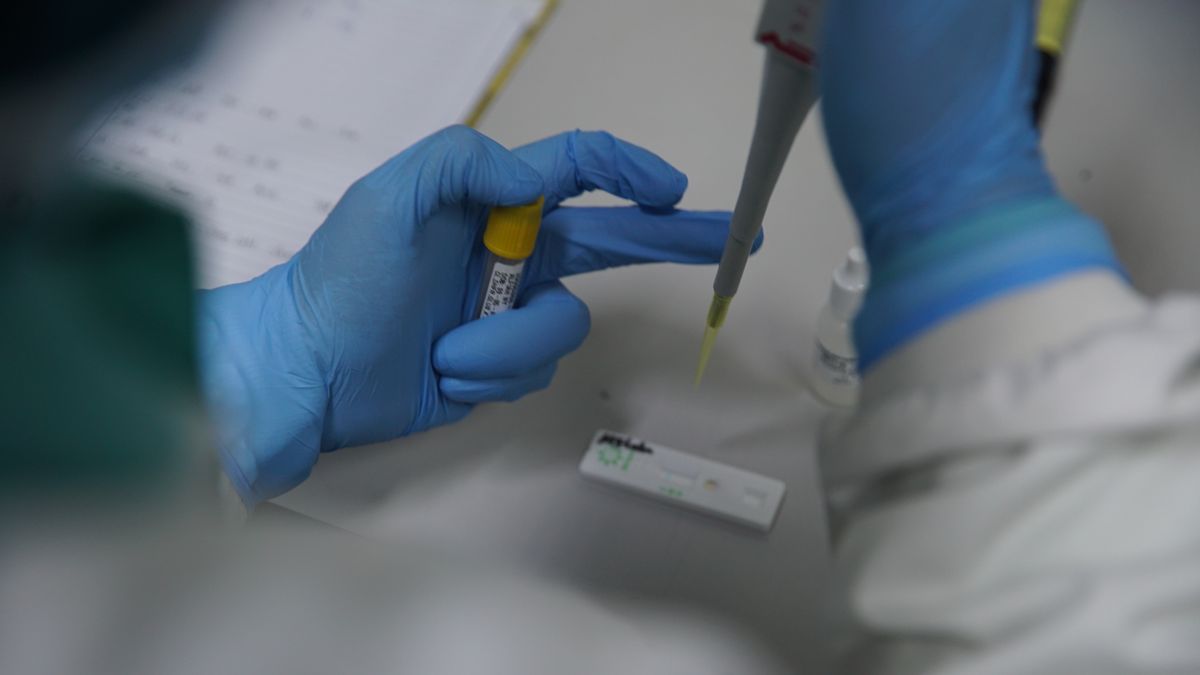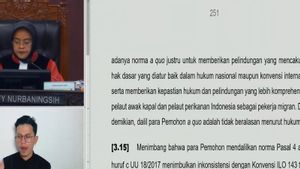JAKARTA - The addition of positive cases of COVID-19 in Indonesia reached 1,000 for two consecutive days. There are a number of conjectures that make this figure appear.
Epidemiology expert from the University of Indonesia, Tri Yunis Miko Wahyono, said there were two reasons for the increase in positive cases for two consecutive days. First, it is due to a backflow after Eid Al-Fitr. Second, the emergence of new normality policies.
The new normality policy has an impact on stretching community activities. This policy makes some people start working again in the office and leave the work from home pattern.
"The possibility (of increasing positive data) due to going home can also be due to the new normal issue," said Yunis when contacted, Thursday, June 11.
Apart from these two factors, Yunis said, the increase in positive patient data was due to the accumulation of specimen examinations in the laboratory. This is because on Eid Al-Fitr, the laboratory staff will be off for two days.
Yunis said, actually the increase in this data had happened a few days ago. Because, the specimen examination takes 3-7 days. As a result of this queue, it was as if the increasing number of positive data had only occurred for the past two days.
"So, (the data) are the lab results taken four days ago. The lab results were exposed (from the data) 3 to 7 days ago. So (2 days data) this happened 7 to 14 days ago," he said. Yunis.
Criticism for the governmentA number of government policies in handling this virus, ranging from Large-Scale Social Restrictions (PSBB) to the new normal phase, are deemed unable to reduce the rate of spread of the virus.
Public Policy Analysis Trubus Rahadiansyah assesses that not all regions have been able to implement policies issued by the central government. Thus, the implementation of policies from the center is weak in supervision and has an impact on the high rate of spread of the virus.
"Indeed, the central government always issues policies that are not suitable for several regions. The impact is getting bigger because of the incompatibility in their implementation," Trubus told VOI, Thursday, June 11.
Trubus suggested that the central government no longer issue new policies in dealing with the COVID-19 outbreak. For him, it will be more effective when local governments are given the opportunity to issue policies in their respective regions to deal with this event.
"Maybe allowing the regional heads to make and implement their respective policies that are deemed suitable and effective in facing the pandemic period," said Trubus, adding that the central government could be the supervisor.
"The central government can also be the party to prevent any regulations that may intersect with other regions or regions," said Trubus.
For example, about the rules for entering and leaving an area. The central government can find a middle ground when there are differences in regulations regarding this matter from one region to another.
"The central government can mediate between different regulations. But still involve regional heads when looking for solutions," said Trubus.
The English, Chinese, Japanese, Arabic, and French versions are automatically generated by the AI. So there may still be inaccuracies in translating, please always see Indonesian as our main language. (system supported by DigitalSiber.id)













